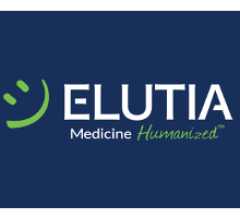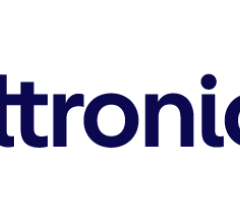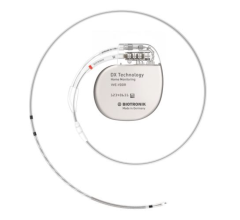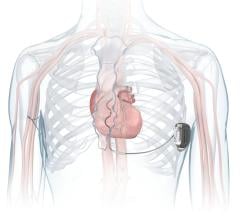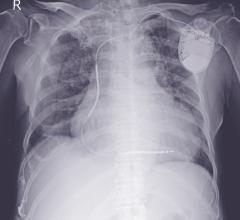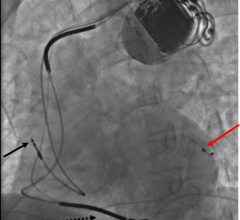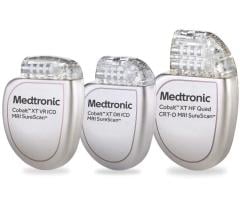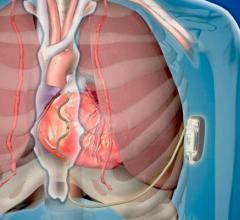September 3, 2008 – Research published this week in the New England Journal of Medicine said patients with heart failure in whom an ICD is implanted and receive shocks for any arrhythmia have a substantially higher risk of death than similar patients who do not receive such shocks.
The article “Prognostic Importance of Defibrillator Shocks in Patients with Heart Failure,” centered on a multi-center study about long-term prognosis after ICD therapy in patients because research in this area is limited.
“Like many other studies, the SCD-HeFT trial clearly demonstrates that ICD devices save lives,” said Dr. N.A. Mark Estes, president of the Heart Rhythm Society, which defends the use of ICDs. “While there is an association between patients who are shocked and an increased mortality, receiving a life-saving shock does not independently predict a patient’s survival rate.”
The HRS issued a release following publication of the article noting that while the study shows a link between ICD shocks and patient mortality, patients who received shocks were in worse health prior to the shock than those who were not shocked. The increased mortality rate is related to their overall health condition rather than ICD activity. Patients receive shocks to stop potentially life-threatening heart rhythms, and many recent studies have shown a drastic decrease in the number of inappropriate shocks. The HRS said.
The study followed 811 patients with heart failure who receive an implantable cardioverter–defibrillator (ICD) for primary prevention (i.e., prevention of a first life-threatening arrhythmic event) and may have later receive therapeutic shocks from the ICD. ICD shocks that followed the onset of ventricular tachycardia or ventricular fibrillation were considered to be appropriate, and all other ICD shocks were considered to be inappropriate for the purpose of the study.
The during the median follow-up period of 45.5 months, 269 patients (33.2 percent) received at least one ICD shock. Of those, 87 were considered inappropriate and 54 patients receiving both appropriate and inappropriate shocks.
In a Cox proportional-hazards model adjusted for baseline prognostic factors, an appropriate ICD shock, as compared with no appropriate shock, was associated with a significant increase in the subsequent risk of death from all causes. Researchers also found an inappropriate ICD shock, as compared with no inappropriate shock, was also associated with a significant increase in the risk of death. For patients who survived longer than 24 hours after an appropriate ICD shock, the risk of death remained elevated. The most common cause of death among patients who received any ICD shock was progressive heart failure.
Researchers were from University of Washington; the Seattle Institute for Cardiac Research; Duke Clinical Research Institute; Durham, NC; University of Pennsylvania, Philadelphia; Portland Veterans Affairs Medical Center and Oregon Health Sciences University, Portland; Oregon Cardiology Associates, Eugene; University Hospital, London, ON, Canada; Johns Hopkins University, Baltimore; Institut de Cardiologie de Montréal, Université de Montréal, Montreal; Loyola University Medical Center, Maywood, IL; and the Mayo Clinic, Rochester, MN.
The Heart Rhythm Society reiterated its stance on the importance of ICDs in patients with life-threatening arrhythmias, and said ICDs are 99 percent effective in stopping life-threatening arrhythmias. The HRS said ICDs are the most successful therapy to treat ventricular fibrillation, the major cause of sudden cardiac arrest. However, only 35 percent of patients who could be helped by an ICD have one. ICDs continuously monitor the heart rhythm, automatically function as pacemakers for heart rates that are too slow, and deliver life-saving shocks if a dangerously fast heart rhythm is detected.
For more information: www.nejm.org, www.hrsonline.org


 January 13, 2026
January 13, 2026 
